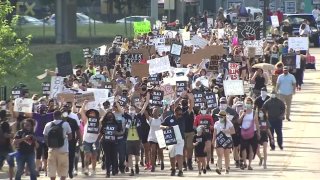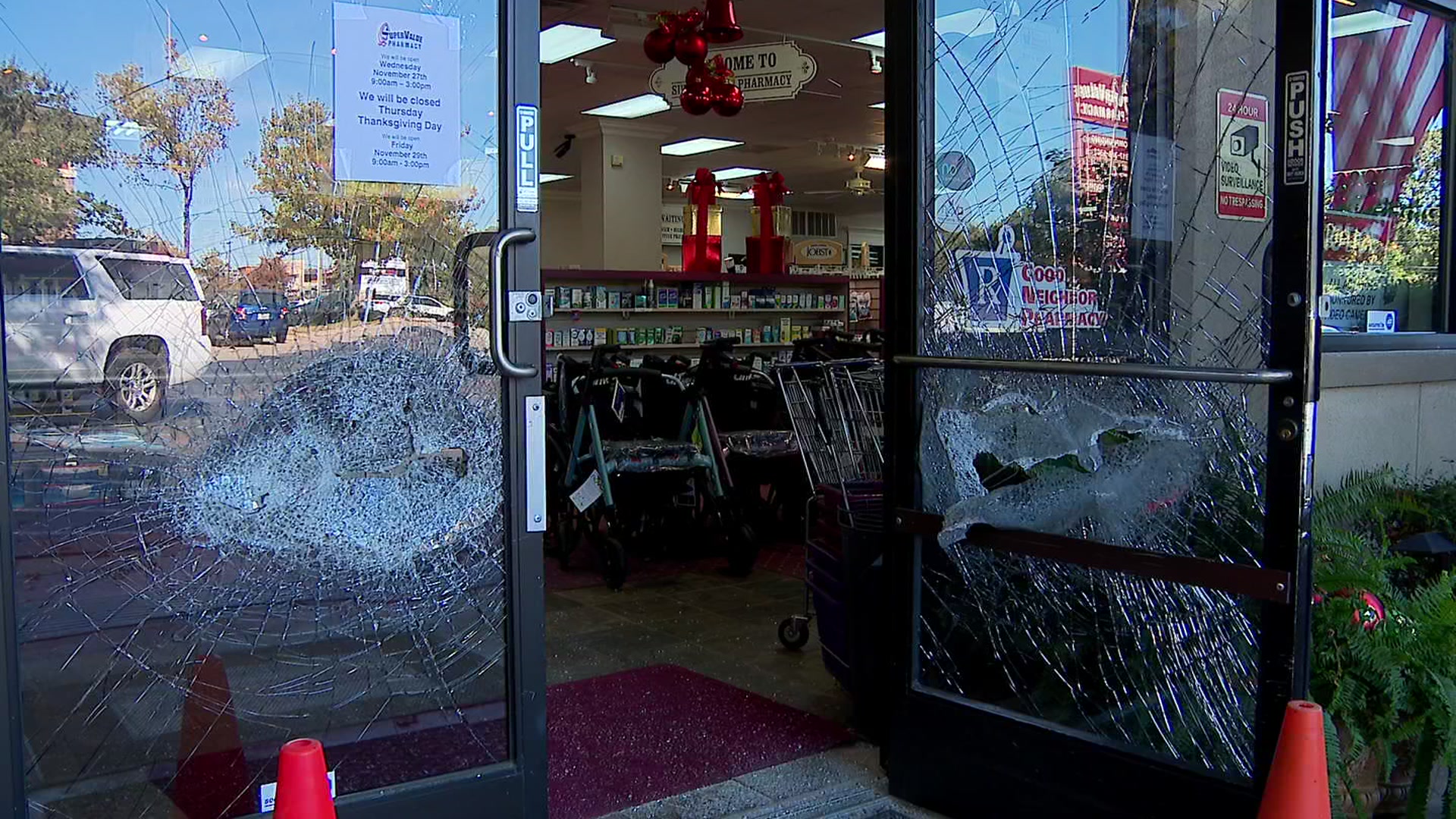
A report released by Dallas police on their response to protests that followed the killing of George Floyd in Minneapolis outlines changes the department plans to make, including who can authorize the use of tear gas and how to train for incidents involving mass arrests.
Dallas police released the report late Friday, detailing the first four nights of protests that began May 29 following the death days earlier of Floyd, a Black man who died after a white Minneapolis police officer pressed his knee against Floyd's neck. Floyd's death sparked protests around the globe against racial injustice and police brutality.
The report found that Dallas police leaders struggled with operational plans, communication and keeping a unified command structure amid the downtown protests.
Dallas Police Chief U. Renee Hall said in a meeting Friday with The Dallas Morning News editorial board prior to the report's release that it highlights mistakes.
"Whatever we do as a police department, we'll acknowledge it, we'll fix it, and move forward," Hall said.
The report says that officers for the first two days of protests didn't have clear rules of engagement. The report also noted training shortcomings by commanders who struggled to make rapid decisions.
Images taken of events that weekend showed violent demonstrations resulting in chaos just hours after a peaceful protest began.
Local
The latest news from around North Texas.
The report says that the department is investigating about 50 use-of-force complaints during the four days with help from the Office of Community Police Oversight.
In those four days, two people and six officers reported serious injuries, the report said. A police horse was seriously injured. Three police vehicles were burned and many others were vandalized.
Hall told the newspaper that she's already made some policy changes after reflecting on the department's response.
She formalized a duty-to-intervene policy, which requires officers who witness misconduct to stop and report it. She also issued a department order limiting the use of pepper-ball weapons and other less-lethal ammunition in crowd control.



